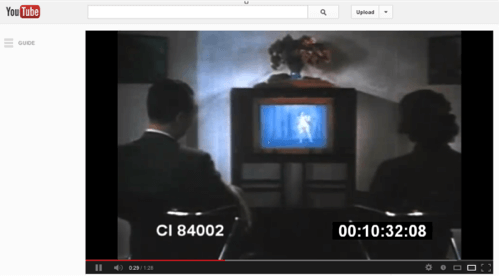
Out of all the lines the press uses to describe Google’s interests in funding better content on its biggest social platform, the dominant one by far is: “YouTube is trying to compete with television.”
Right.
Yes, Google in all its infinite wisdom wants to compete with the decades-old giant that is the multi-billion dollar television industry with paltry investments of $100 million or so every couple of months. /sarcasm
YouTube Cannot Replace TV
The notion is just plain silly – it even made Time Warner’s CEO laugh. But this motif, if you will, continues to dominate the discussion – much to the chagrin of YouTube itself. Whenever YouTube invests in networks or lures mainstream celebrities (or almost celebrities) to start “channels,” which it has been doing with increasing frequency over the last two years, that same line pops up. I am officially sick of it, and YouTube is too.
2011 was the year marking Google’s biggest investments into video content, and it was this same year that the “YouTube competing with TV” meme was born. Media outlets everywhere served up some derivative of this sentence, including Reuters, which wrote “the Google-owned site is issuing a direct challenge to the television industry.” A direct challenge!
Can you blame Reuters though, when everyone from the Wall Street Journal to the Hollywood Reporter, was doing the same thing? Hell, I am guilty of it, too.
And it isn’t going away. Canada’s The Star printed the headline just yesterday: “YouTube aims to compete with TV.”
No, Canada, YouTube does not aim to compete with TV. How could it?
TV Still Rules
YouTube doesn’t want anyone to think it has any intention of replacing television. The company hews to the sentiment first expressed by Time Warner CEO Jeff Bewkes not so long ago – namely, that it’s ludicrous to think YouTube’s relatively tiny content budgets, ad rolls, and Internet infrastructure could really compete with the giant television industry.
YouTube — realistically — views its place in the entertainment industry as complementaryto television and Hollywood. If you consider things in light of the Life is Like a Jar of Rocks analogy, here the rocks are Hollywood, the pebbles are television, and the sand is YouTube and Web content. There’s plenty of room in the jar for everyone, and no one is trying to replace the others.
YouTube wants to be the sand to TV’s pebbles in the entertainment jar, everyone. Let’s all write it together so we remember: YouTube is the sand to TV’s pebbles in the glass jar of entertainment.
There’s only one problem. No matter how accurate the analogy, rocks, pebbles and sand make for far less interesting copy than the threat of taking down TV. No matter how ridiculous that might be.
Updated: I’ve rewritten the last section in light of new information.
Image via YouTube.

















